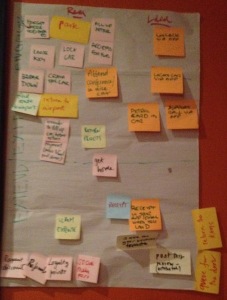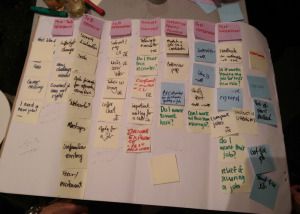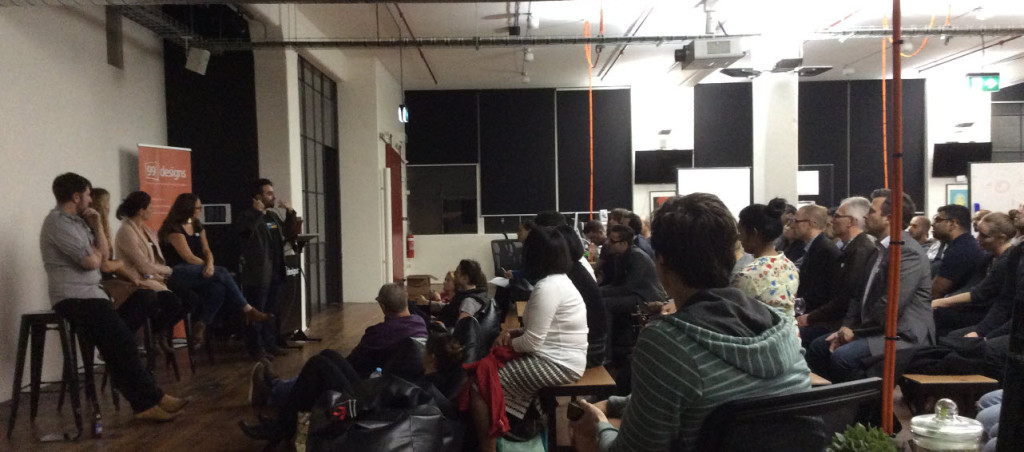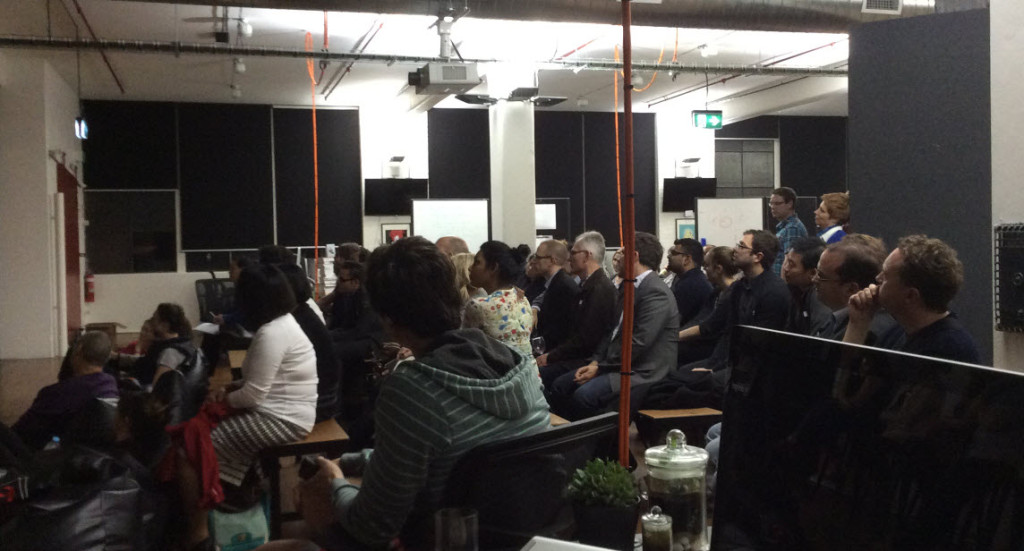Our February session focused on product-tising APIs and our speaker, Jason Cormier from Mashery, has put together the following post in case you missed anything.
You can also check out Chris Chinchilla’s summary of the night.
Take it away Jason…
Product Managers: Start Taking Control of Your API Strategy
Let me take you back some 15 or so years ago. The Internet was in its infancy, and the World Wide Web was something mysterious and scary for most people, let alone businesses to think about. Getting yourself online required getting off your land line telephone first.
There were trailblazers of course, those who saw the potential of a new emerging technology and put the first commercial websites online. It was a technical challenge, but they succeeded. They invented the blink tag, the splash page, the shopping cart. E-commerce was born.
During these early years, almost all websites were built and managed by people who worked in IT departments who answered to the strange and slightly kinky sounding title of Webmaster. Eventually however, the power and influence of the technology was recognized as being too valuable and important to the business. Marketing and Product Managers took control and we haven’t looked back since.
You wouldn’t let your IT department plan and run your website strategy today. Yet in most companies, history seems to be repeating itself when it comes to their APIs.
It’s understandable of course, since you may not even know what an API is, let alone why as a Product Manager you MUST own the strategy for APIs within your business. But rest assured, much like the World Wide Web 15 years ago, APIs today present a wide open playing field for businesses to embrace a new emerging technology trend. Whether you act or not there are already trailblazers leading the way, some of whom are likely to become your future competitors.
First, the basics: What is an API?
API stands for Application Programming Interface. It’s a technology protocol that enables disparate systems talk to each other, and share information. Think of it like a system of security doors you put in front of your most valuable data, making it accessible only to those who have been given a key.
For example, imagine your business has a proprietary digital storage service that you use to archive important documents. Perhaps you decide to develop a mobile app that requires access to those documents. If your storage service has an API, it makes it easy for the app to access your data. The app is given a unique key, which it uses to request access to documents whenever needed. The API recognizes the key and gives the app access to the documents. Pretty simple, right?
Well, to be fair this analogy is pretty basic. There is a LOT more to APIs of course, it’s a complex piece of technology. And at some point before any API roll out someone has to make decisions about things like data structures, object classes, protocols, authorization tokens, proxies, caching, and more. Given this, you can see why most APIs are currently managed by IT departments. However if you take a step back, if you think like a Product Manager and consider the potential of this technology and what it can do for your business, how it can power your products, how you can better enable external partnerships… you’ll forget about the specs and start to focus on why APIs have the potential to be one of your most valuable commercial drivers.
Value of APIs as a Product
No matter who you work for today your business has digital assets of some kind, from which you are already extracting value. There are 3 main types of assets that are suitable for sharing:
- Content: Consumable information, ex. FoxSports live stats feed, Lonely Planet city overviews, etc.
- Services: Functionality, ex. Telstra SMS services, Dimmi restaurant booking engine, etc.
- Data: Your internal business metrics, ex. units sold over time by location to whom, customer profiles, etc.
I can guarantee you that no matter what you are currently doing with these assets in your business, there are ways to extract even more value from them. And the key to optimizing the value of your assets is to make them easier to access, via APIs.
What kind of value?
When you have easy, fast access to your assets you can do things like:
Build and iterate your own products much faster. Has your website team built a new search feature? Your mobile apps team can get access to it immediately via the API. For example, Comcast now roll out new features across their products in just 30 minutes when it used to take months. Check out the Comcast success story & webinar where the Senior Director of Product Development & Technology and a Senior Engineer talk about the change and benefits.
Better business intelligence. Want to know which products on which platforms are drawing on your assets most frequently? When everything goes through a single API it’s easier to track. Sensis track all the advertiser impressions generated on their own products AND a range of 3rd party products via their APIs. More on how Mashery helped Sensis.
Facilitate strategic partnerships. Want to see your brand integrated into 3rd party products? It’s as easy as giving them their own API key. Fantasy sports platform, SportData was able to syndicate out to channel partners like Google and Facebook quickly and easily by providing access to their APIs. See how it drives results and ROI.
Introduce new revenue streams. If your assets are valuable to you, maybe they’re valuable to others as well? With APIs you can commercialize your assets by selling access. Choice Hotels are using Mashery technology to assist in generating additional booking revenue via the 6000+ partners they service via their APIs.
There are a myriad of ways you can create and manage your APIs, and that’s definitely something you will need to work with your IT teams to define eventually. But don’t let yourself get lost in those details too early, as can sometimes happen. Focus first on what business goals you as a Product Manager seek to deliver. Hopefully you’re starting to see now, that by treating your API services like a product, you are effectively creating a service platform. A platform that empowers you to make business decisions and take action, without having to engage your IT team to build you something new every single time.
What does a successful API platform look like?
A successful API platform will look like rapid prototyping and faster innovation on the product ideas you have now, preparation and readiness for unknown future opportunities, and a willingness to open yourself up and let others carry some of the burden and risk. It’s not something all companies are necessarily comfortable with – not even Google.
I’ll leave you with a link to the infamous leaked memo issued by Google employee Steve Yegge, who roundly criticized Google for failing to recognize the importance of APIs as a platform back in 2011:
“Google+ is a knee-jerk reaction, a study in short-term thinking, predicated on the incorrect notion that Facebook is successful because they built a great product. But that’s not why they are successful. Facebook is successful because they built an entire constellation of products by allowing other people to do the work. So Facebook is different for everyone. Some people spend all their time on Mafia Wars. Some spend all their time on Farmville. There are hundreds or maybe thousands of different high-quality time sinks available, so there’s something there for everyone.”
—–
Jason Cormier is the Director of Strategy and Business Development for Mashery in Australia. Mashery works with over 200 brands worldwide to help them manage their APIs in order to build new revenue channels, speed time-to-market, and spur innovation. Find out more at www.mashery.com










